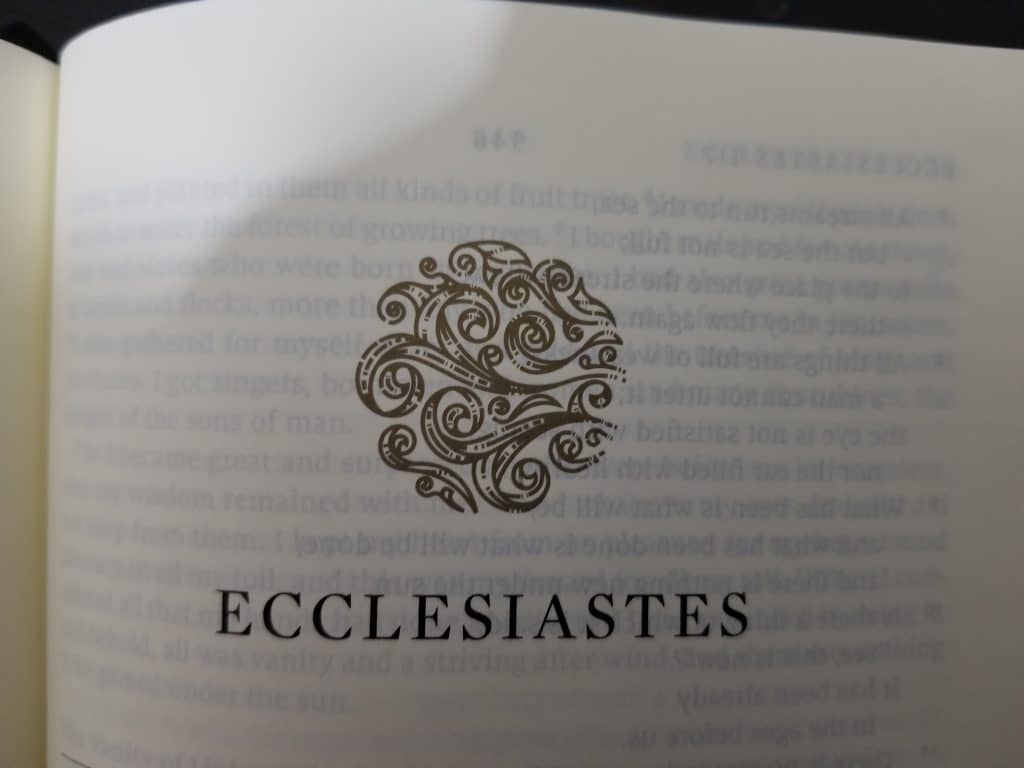⏱️ Estimated Reading Time: 5 min read
Life is short. This is the great truth of the book of Ecclesiastes. No matter how full of life one may feel, there will come a day when the life will go out of them. It is for this reason that Solomon writes, “Remember also your Creator in the days of your youth” (Ecclesiastes 12:1). Because life is short, it is important to start off on the right path. There are endless stories of people who live with regrets later in life because of the way they conducted themselves in their youth. The truth is as Johnny Hunt put it, “we cannot afford to put off God” until we are older (Ecclesiastes, 73). We are not promised tomorrow. Therefore, it is wise to seek the Lord now while the opportunity still avails itself. In this passage, Solomon gives three reasons why it is essential to seek our Creator in our youth.
Before Death Comes
Solomon says that we are seek our Creator, “before the evil days come and the years draw near of which you will say, ‘I have no pleasure in them'” (Ecclesiastes 12:1). Although death is inevitable, it is not natural. Death is not God’s original plan for humanity. It only comes into the world through the disobedience of our first parents. Yet, for every generation since, death is inevitable. There will come a day when death will creep up, and a person may not expect it. A person may be young and full of life or old and sick in a nursing home, but death will come. Therefore, Solomon urges the reader to seek the Lord now before it is too late. The prophet Isaiah puts it this way, “seek the Lord while he may be found; call upon him while he is near” (Isaiah 55:6). There will be a day when the Lord is not near, and it will be too late to seek Him. Seek the Lord while there is an opportunity.
Before Old Ages Makes Faith Difficult
Next, Solomon urges the reader to consider the aging process. Aging is part of the dying, and it starts before you know it. This is why it is crucial to seek the Lord in youth because old age makes faith difficult. Once a person is set in their ways, it is more difficult for them to see their need for God. Solomon then spends the next several verses poetically describing the aging process. These traits he describes are meant to force the reader into thinking now about their own mortality. It will be too late to seek the Lord when, “the sun and the light and the moon and the stars are darkened” (v. 2). This is a reference to mental vitality or sharpness. As we age, we begin to lose our sharpness of mind. It will be challenging to remember the Creator if we cannot remember where we have placed our keys. It is for this reason that Solomon says to seek the Lord before the effects of aging set in.
Solomon then goes on to describe other effects of aging such as the weakening of the arms, hands, and legs (v.3); the loss of teeth, the loss of hearing, and the lack of the ability to sleep (v.4); and the overall weakening of the body by not being able to do what a person once be able to do (v.5). The list goes on and on. In fact, both in the Hebrew and English this section of chapter 12 is one long run-on sentence, giving the reader a sense of exhaustion at the end. The point is to force the reader to look at the reality of mortality in the face, thereby causing them to see their need for the Lord. This is why it is good to seek the Lord as early in life as possible so that a person can trust Him through all of the stages of aging and into eternity.
Before Life Goes Out
Lastly, Solomon urges the reader to remember their Creator before life goes out. Life is but a vapor, and we only have one chance to seek and know the Lord before eternity. There will come a day when, “the silver cord is snapped, or the golden bowl is broken, or the pitcher is shattered at the fountain, or the wheel broken at the cistern” (v.6). He uses the language of a water well system breaking, thereby cutting off the source of life. This is all a reference to the body giving up its life and the soul stepping into eternity (v.7). For Solomon, this too was vanity because he did not know the full story of redemption. He did not have the privilege of standing on the A.D. side of the cross. If lived for the Lord, this life is not a waste.
Solomon’s main point in this passage, as made clear throughout, is to seek the Lord now while there is still an opportunity. There will come a day when the life we have will come to an end, and there will be no more opportunity. Yet, while we still have today, there is still hope of knowing your Creator. I love the quote from the poem by C. T. Studd, a missionary to China in the 1800s, made famous by John Piper in his book Desiring God, “only one life, twill soon be past, only what’s done for Christ will last.” This powerful truth is a greater reminder of what is truly important. Even what we do in this life is seemingly insignificant, if done for Christ, it counts for eternity.



